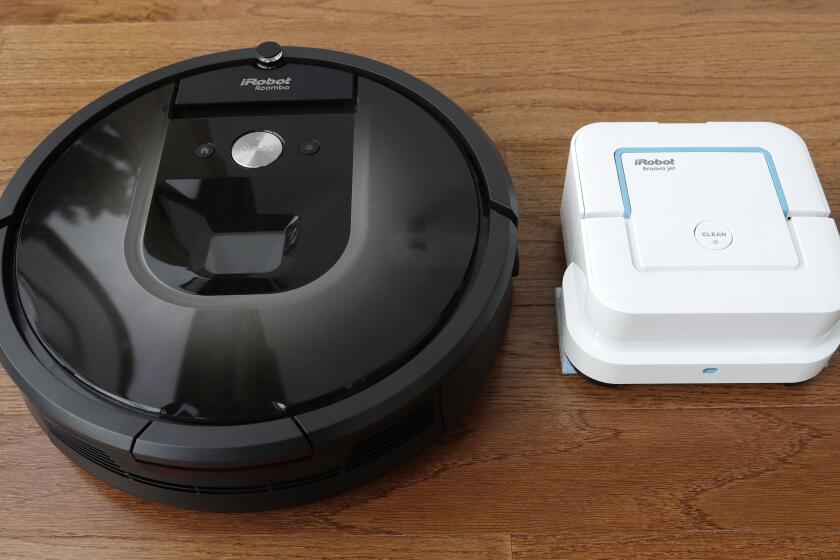Gnutella Targeted for Piracy Control
In the wake of its legal victory over Napster, the recording industry is shifting its focus from lawsuits to high-tech silver bullets as it tries to clamp down on online song swapping.
The Recording Industry Assn. of America has been meeting privately with Internet security firms to learn about their anti-piracy technologies. Soon, the record companies’ trade group is expected to seek proposals for detecting and responding to piracy on Gnutella, a loosely organized file-sharing network whose popularity has skyrocketed since a federal judge slapped Napster with a preliminary injunction this month.
“They’re really looking to understand and monitor the Gnutella network so they don’t find themselves in the same position as [they did with] Napster,” said Randy Saaf, chief executive of MediaDefender Inc., a privately held anti-piracy firm in Los Angeles.
In fact, Redwood City, Calif.-based Napster Inc., the most popular of the online song-swapping services, may prove to be the least of the record industry’s problems. Although Napster attracted millions of users who copied billions of songs for free, the labels won a preliminary injunction March 7 that requires Napster to try to block the transfer of popular songs.
Gnutella, on the other hand, is one of several decentralized file-sharing networks that aren’t businesses and have no central control. That means there’s nobody at these networks for the labels to sue--just the consumers who use them.
Security experts say that controlling piracy on Gnutella is a daunting task, given the number of users and the amount of data being transferred. But one effect of the RIAA’s recent moves may be to put the fear of detection into the hearts of Gnutella users, who thus far have been cloaked in anonymity.
“To me, it’s posturing,” said Bruce Forest, vice president of media and entertainment for Sapient, an Internet consulting firm. “That basically is a, ‘I’ve kicked Napster’s [rear] and now I’m coming after Gnutella users.’ It’s a scare tactic.”
Amy Weiss, a spokeswoman for the RIAA, said her organization prefers technical solutions to lawsuits as a matter of policy. But she added that no request for proposals has been issued, and the RIAA has no plans at this time to issue one specifically about Gnutella.
The RIAA appears to be following in the footsteps of the Motion Picture Assn. of America, the movie studios’ trade group, which issued a request for proposals on Internet piracy last year. The group hired Ranger Online Inc. of Vancouver, Canada, to find and tag pirated copies of movies on the Net, said Rich Taylor, a spokesman for the MPAA.
Although not as popular yet as Napster, Gnutella, LimeWire and similar “peer-to-peer” networks have been growing quickly. Analysts say users are flocking to the alternative peer-to-peer networks as Napster chokes off hit music.
Several companies are touting software that can monitor file-sharing networks and, under certain circumstances, stop a pirated file as it’s being transmitted. In addition to MediaDefender, the RIAA has heard presentations from at least two companies that can identify copyrighted files being traded on Gnutella: Cantametrix and Audible Magic.
Cantametrix and Audible Magic identify song files based on their sonic properties, which makes it hard for pirates to disguise them. MediaDefender, on the other hand, primarily identifies files by an electronic tag showing the amount of data in them--an approach that can yield multiple tags for the same song.
Saaf said MediaDefender can see what Gnutella users are sharing and searching for, redirect searches for copyrighted songs, and even shut down the entire network. Other companies claiming similar capabilities include Los Angeles-based Vidius Inc. and IpArchive of Boulder, Colo.
Derek Broes, chief executive of Vidius, said his company would be interested in working with the RIAA, saying, “I think we’re probably the only people who can participate in the level that they need.” But he added, “I don’t think it can be handled with just one company. It’s too big a problem.”
Max Wells, chief technical officer of Cantametrix, said the programmers behind Gnutella and similar networks are not run-of-the-mill Internet users. “This is a religious crusade,” he said.
Still, he said, stopping piracy on those networks is “more feasible than you would initially think.” Only about 1% of Gnutella users are supplying the files that everyone else copies, Wells said, so “it’s not so much an issue of blocking everybody but blocking those who are the most egregious.”
Forest of Sapient said the two main hurdles are the sheer number of files being traded--millions of audio, video and software titles are copied daily--and the protections that Internet users enjoy under federal law.
Typically, the anti-piracy measures work by identifying consumers who made or offered to make unauthorized copies of copyrighted works, then asking their Internet service providers to disable their accounts. The law that enables this technique--the Digital Millennium Copyright Act of 1998--also requires Internet providers to restore a disabled account if the user claims innocence, forcing the record labels to file suit against that user.
Given the number of users involved, Forest said, the RIAA would never be able to sue them all.




